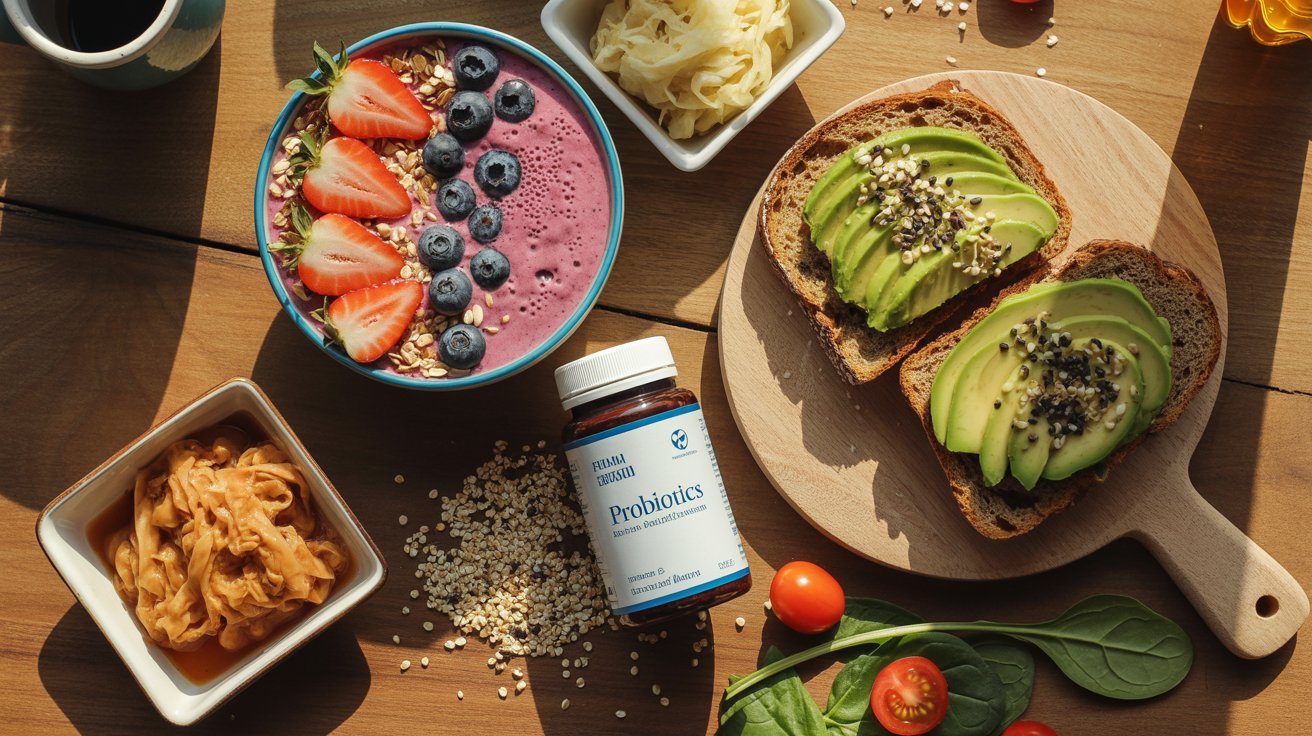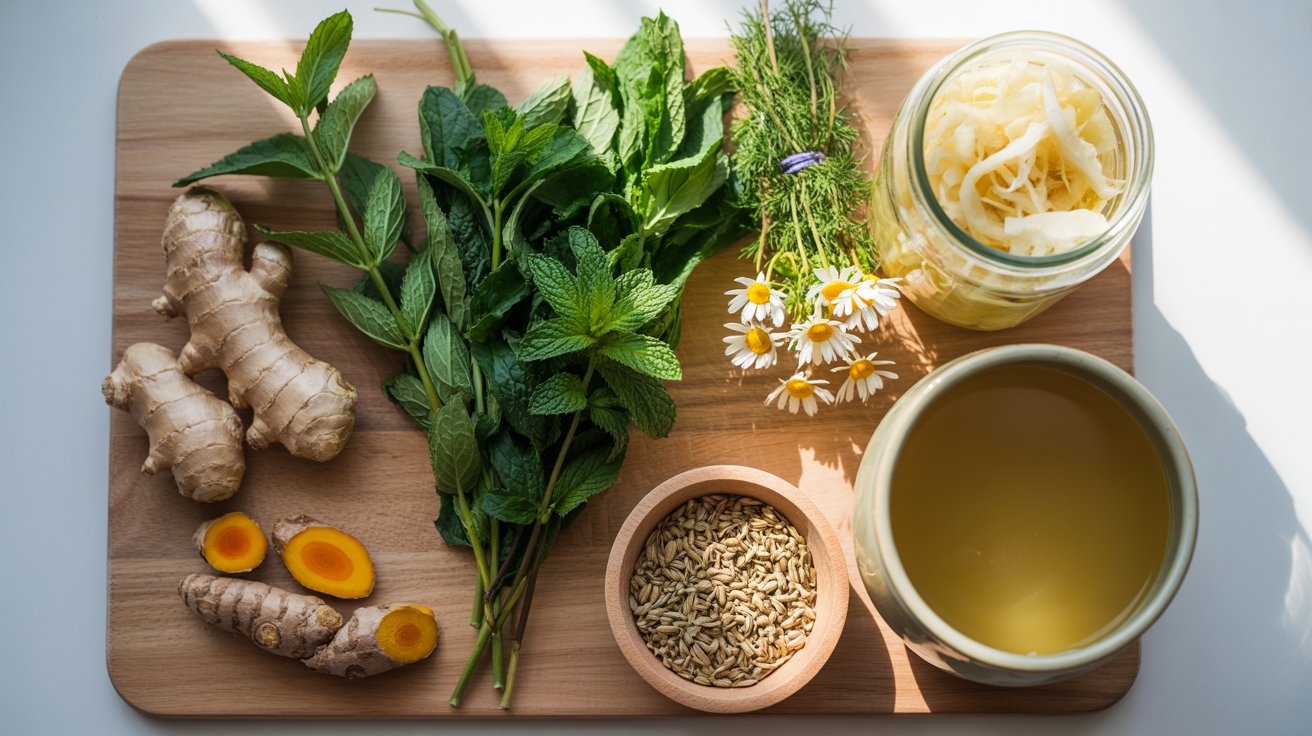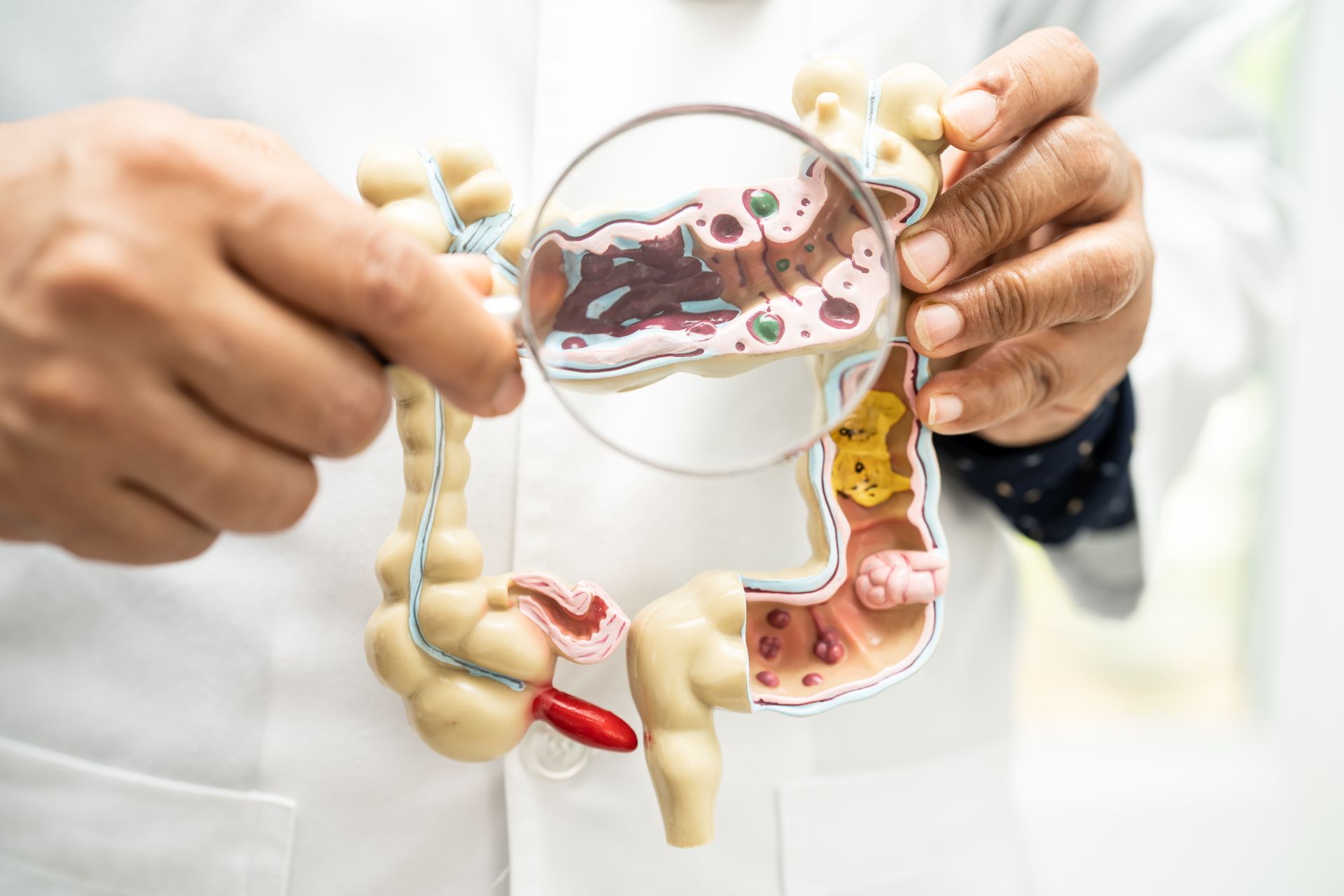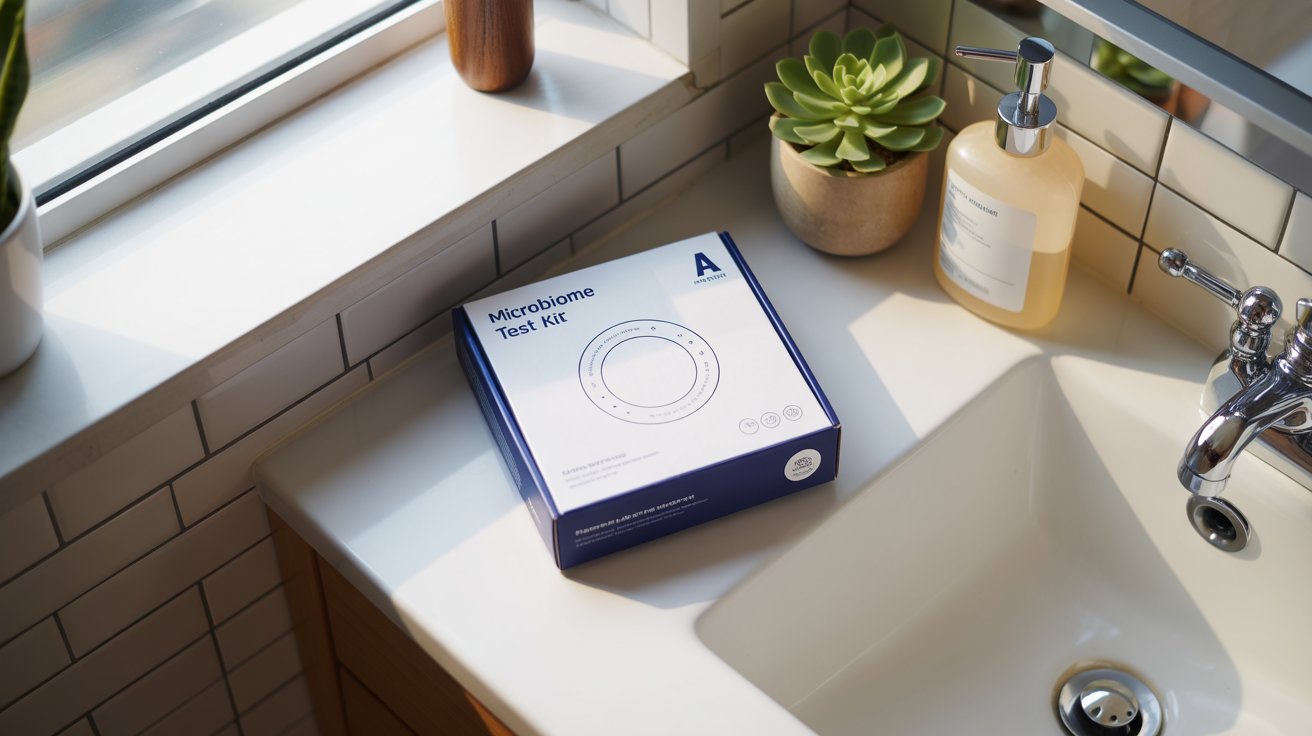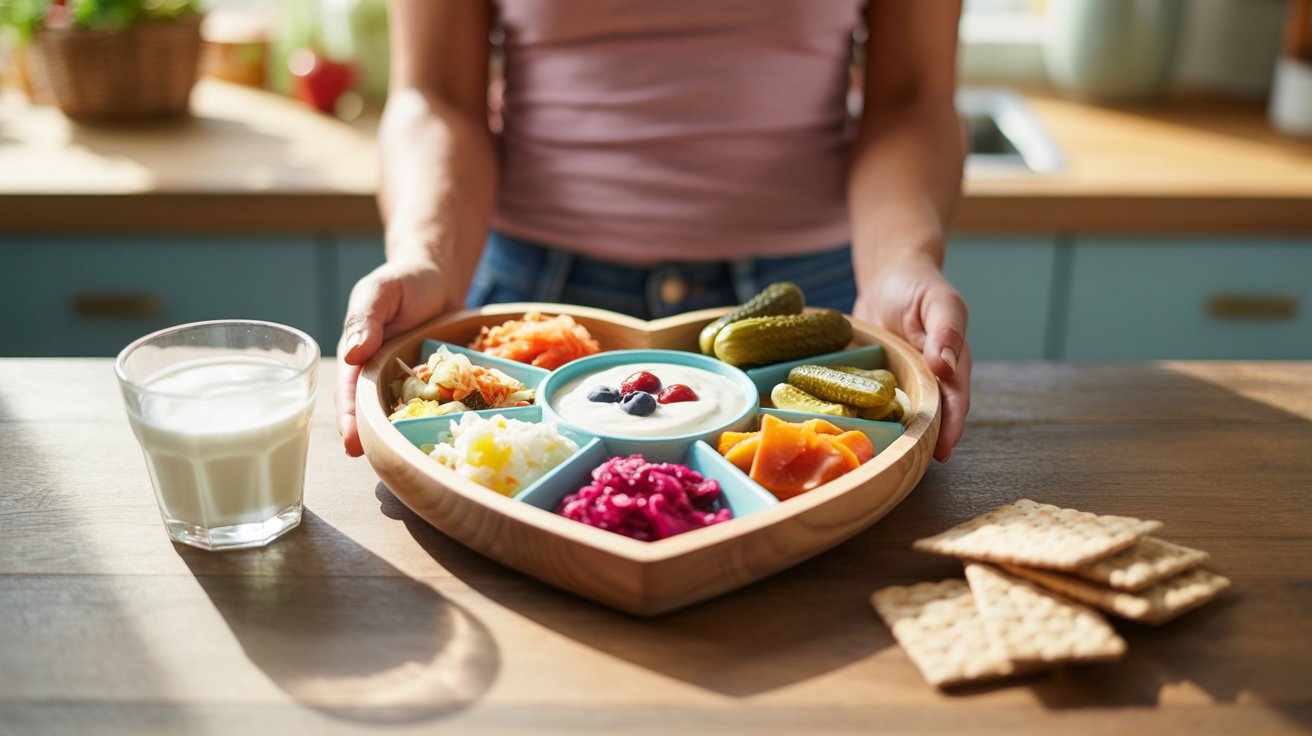Menopause can feel like a rollercoaster. One day you’re fine, and the next, you’re dealing with hot flashes, mood swings, and all sorts of discomfort. Discover why balancing your gut for a smoother menopause transition is key.
It’s a big change, and it can throw your body—and mind—off balance. But here’s some good news: Your gut health plays a significant role in how you experience menopause, and taking care of it could help ease your transition.
The gut is often called the “second brain” for a reason—it affects everything from hormone regulation to mood and even sleep quality.
So, what if you could support your gut to make this phase of life a little easier?
I’ll be sharing some practical ways to balance your gut during menopause, making those transitions a bit smoother and more manageable.
1. Probiotics: The Friendly Bacteria You Need

Probiotics are your gut’s best friends. These beneficial bacteria can help balance your gut microbiome, which is key when it comes to menopause symptoms like bloating and digestion issues.
Probiotics can also help with mood swings by supporting serotonin levels—yep, serotonin is mostly produced in your gut.
How to Incorporate:
- Take a high-quality probiotic supplement daily.
- Include probiotic-rich foods like yogurt, kefir, sauerkraut, and kimchi in your diet.
2. Fiber: Keep Things Moving Smoothly

As we age, things tend to slow down—our metabolism, our energy levels, and yes, even our digestion.
A diet rich in fiber can help keep your digestive system running smoothly and prevent constipation, which is a common menopause complaint.
How to Incorporate:
- Fill your plate with high-fiber foods like whole grains, fruits, vegetables, and legumes.
- Try adding chia seeds or flaxseeds to smoothies or oatmeal for an extra fiber boost.
3. Gut-Healing Bone Broth

Bone broth is packed with collagen and amino acids that are great for gut health, especially if you’re dealing with inflammation.
It helps repair the gut lining, which is crucial during menopause when hormonal fluctuations can lead to digestive discomfort.
How to Incorporate:
- Drink a warm cup of bone broth daily.
- Use bone broth as a base for soups or stews to get more of this gut-friendly goodness.
4. Herbal Teas for Calm and Balance

Certain herbs like peppermint, ginger, and chamomile are known for their soothing effects on the digestive system.
They can help calm bloating, reduce gas, and promote healthy digestion. Plus, herbal teas are a nice way to unwind, especially if you’re having trouble relaxing during menopause.
How to Incorporate:
- Brew a cup of ginger or peppermint tea after meals to aid digestion.
- Sip chamomile tea before bed to support relaxation and sleep.
5. Omega-3 Fatty Acids for Inflammation

Omega-3s are fantastic for reducing inflammation in the body, and they play a role in balancing hormones.
By incorporating more omega-3-rich foods into your diet, you can support both your gut and your overall well-being during menopause.
How to Incorporate:
- Include fatty fish like salmon, sardines, or mackerel in your meals.
- Snack on walnuts or chia seeds, or add flaxseeds to your smoothies.
6. Hydration: Water for Gut Health

Dehydration can worsen constipation and bloating, so it’s important to drink plenty of water during menopause.
Staying hydrated not only helps digestion but also supports healthy skin and energy levels.
How to Incorporate:
- Aim for 8 cups of water a day, or more if you’re active or in hot climates.
- Add slices of lemon or cucumber for a refreshing twist.
7. Limit Processed Foods and Sugar

High sugar intake can upset the balance of your gut bacteria, leading to inflammation and digestive issues.
Processed foods and refined carbs can exacerbate menopause symptoms, so it’s best to cut back on these to support a healthier gut.
How to Incorporate:
- Choose whole foods like fresh veggies, fruits, and lean proteins.
- Swap sugary snacks for whole food options like fruit or nuts.
8. Manage Stress with Mind-Body Practices

When you’re stressed, it directly affects your gut.
High stress levels can cause gut inflammation, disrupt your microbiome, and worsen menopause symptoms. That’s why stress management is so important during this time of life.
How to Incorporate:
- Practice mindfulness, meditation, or deep breathing exercises daily.
- Try yoga or walking outside to unwind.
9. Digestive Enzymes for Support

Your digestive system may need a little extra help during menopause.
Digestive enzymes can break down food more efficiently and help reduce bloating, indigestion, and heartburn, which can often become more pronounced during menopause.
How to Incorporate:
- Consider adding a digestive enzyme supplement to your routine.
- Incorporate foods rich in natural enzymes, like pineapples (bromelain) or papayas (papain).
10. Balance Your Hormones with Healthy Fats

Healthy fats play a huge role in hormone production, and since menopause is all about hormone shifts, supporting your body with fats like avocado, olive oil, and coconut oil can make a real difference.
These fats also help keep your gut lining healthy.
How to Incorporate:
- Add slices of avocado to your salads or toast.
- Use olive oil for cooking or as a salad dressing.
Give Your Gut the TLC It Deserves
The transition to menopause is undeniably challenging, but with a little love and care for your gut, it doesn’t have to be as tough.
By supporting your gut with the right foods, supplements, and lifestyle choices, you can help ease the physical and emotional ups and downs of this life stage.
Your gut health is a key player in your overall well-being, and taking care of it can make all the difference.

